Srila Prabhupada on who is qualified to write transcendental literature:
These days many ISKCON devotees are publishing their own books, making their own translations and commentaries on Sanskrit or Bengali texts, or editing Prabhupada’s books
I have no problems with devotee’s translating books into English that were not done by Srila Prabhupada. What must be considered is: if we accept Srila Prabhupada as a guru or acharya then we must accept what he said about who is qualified and who is not to do this seva.
One effect of this flood of new books by various devotees is that if you go to an ISKCON event or temple and visit the book table often one finds that these books are more prominently displayed and distributed than Srila Prabhupada’s books. Also when you get a book that has Prabhupada’s name on it as the translator and author the words contained in it, are not approved of by Prabhupada due to content being changed by conditioned souls even after his clear instructions where given to not change it.
In this article we are going to discover directly from Srila Prabhupada what the qualifications are that one must have to write transcendental literature. On this same note when one edits a book rearranging or removing words that were approved by the acharya and uttama-adhikari devotee and replaces them with words that are of ones own choosing according to ones own mind and senses the same principals and rules apply.
Do Not Repeat What the Previous Acharyas Have Already Done:
This is a matter of etiquette. If a previous acarya has already written about something, there is no need to repeat it for personal sense gratification or to outdo the previous acarya. Unless there is some definite improvement, one should not repeat. (Cc. Madhya 12.151)
So Vyasadeva is the spiritual master. So the later acaryas, they did not think it proper that whatever the… Because their spiritual master has had already made a commentary on the Vedanta-sutra, “Oh, that is sufficient. Why should we do again?”These are some of the etiquette. (Sri Caitanya-caritamrta, Madhya-lila 22.21-28 — New York, January 11, 1967)
One cannot defy the previous acaryas. The false pride that makes one think that he can write better than the previous acaryas will make one’s comments faulty. At the present moment it has become fashionable for everyone to write in his own way, but such writing is never accepted by serious devotees. (Cc. Antya 7.134)
Many devotees are writing their own (or editing Srila Prabhupada‘s) Bhagavad-Gita, I guess they have not read these verses from the Caitanya-caritamrta? Or maybe they feel that Srila Prabhupada is not competent in his translations. They obviously consider that there is something lacking in Srila Prabhuapda’s Bhagavad-gita As It Is and believe they can make a better translation and commentary on the Gita than Prabhupada. A mood such as this, where one intentionally or unintentionally may impertinently put forward presentations that overstep or out do the previous acharya simply show that they are not qualified to write transcendental literature.
In this regard one may refer to the Srimad Bhagavatam 3.4.26 where Srila Prabhupada warns his followers of the offense called maryada-vyatikrama “Although one may be well versed in the transcendental science, one should be careful about the offense of maryada-vyatikrama, or impertinently surpassing a greater personality. According to scriptural injunction one should be very careful of transgressing the law of maryada-vyatikrama because by so doing one loses his duration of life, his opulence, fame and piety and the blessings of all the world…. The rule is that in the presence of a higher personality one should not be very eager to impart instructions, even if one is competent and well versed.”
Not Possible Unless Authorized by Superior Authorities:
One cannot write on spiritual matters without being blessed by Krsna and the disciplic succession of gurus. The blessings of the authorities are one’s power of attorney. One should not try to write anything about Vaisnava behavior and activities without being authorized by superior authorities.This is confirmed in Bhagavad-gita: evam parampara-praptam imam rajarsayo viduh. (Cc. Madhya 24.345)
Without Your mercy such poetic expressions would be impossible for an ordinary living being to write. (Cc. Antya 1.196)
Not Possible Unless One is a Pure Unalloyed Devotee of Krishna:
Writing transcendental literature is not something an ordinary devotee can do. Only a pure unalloyed advanced devotee of Krishna has the power to write transcendental literature and anyone who has read Srila Prabhuapda’s books must know this for he stresses this point in many places:
The writing of Vaisnava literatures is not a function for ordinary men. Vaisnava literatures are not mental concoctions. They are all authorized literature meant to guide those who are going to be Vaisnavas. Under these circumstances, an ordinary man cannot give his own opinion. His opinion must always correspond with the conclusion of the Vedas. Unless one is fully qualified in Vaisnava behavior and authorized by superior authority (the Supreme Personality of Godhead), one cannot write Vaisnava literatures or purports and commentaries on Srimad-Bhagavatam and Bhagavad-gita. (Cc. Madhya 24.326)
“The words spoken by the Lord are different from words spoken by a person of the mundane world who is infected with four defects. A mundaner
- is sure to commit mistakes,
- is invariably illusioned,
- has the tendency to cheat others and
- is limited by imperfect senses.With these four imperfections, one cannot deliver perfect information of all-pervading knowledge. Vedic knowledge is not imparted by such defective living entities….One cannot say anything about the transcendental world without being free from materially contaminated consciousness.” (Introduction to Gitopanisad)
Unless one is a fully unalloyed devotee of the Lord, one should not try to describe the pastimes of Krsna in poetry, for it will be only mundane. There are many descriptions of Krsna’s Bhagavad-gita written by persons whose consciousness is mundane and who are not qualified by pure devotion. Although they attempted to write transcendental literature, they could not fully engage even a single devotee in Krsna’s service. Such literature is mundane, and therefore, as warned by Sri Sanatana Gosvami, one should not touch it. (Antya 1.212)
Here Srila Prabhupada stresses that only a pure unalloyed advanced devotee can write transcendental literature and if a devotee who is not a very highly advanced being free from materially contaminated consciousness tries to write such literature it will be mundane and Prabhupada warns us “one should not touch it”.
Transcendental literature that strictly follows the Vedic principles and the conclusion of the Puranas and Pancaratrika-vidhi can be written only by a pure devotee. It is not possible for a common man to write books on bhakti, for his writings will not be effective. He may be a very great scholar and may be expert in presenting literature in flowery language, but this is not at all helpful in understanding transcendental literature.Even if transcendental literature is written in faulty language, it is acceptableif it is written by a devotee, whereas so-called transcendental literature written by a mundane scholar, even if it is a very highly polished literary presentation, cannot be accepted. The secret in a devotee’s writing is that when he writes about the pastimes of the Lord, the Lord helps him; he does not write alone. As stated in the Bhagavad-gita (10.10), dadami buddhi-yogam tam yena mam upayanti te. Since a devotee writes in service to the Lord, the Lord from within gives him so much intelligence that he sits down near the Lord and goes on writing books.(Cc. Adi 8.39)
When a pure Vaisnava speaks, he speaks perfectly. How is this? His speech is managed by Krsna Himself from within the heart. (Cc. Madhya 8.200)
No one can learn Srimad-Bhagavatam who is associated with persons engaged in sex life. That is the secret of learning BhagavatamNor can one learn Bhagavatam from one who interprets the text by his mundane scholarship. One has to learn Bhagavatam from the representative of Sukadeva Gosvami, and no one else, if one at all wants to see Lord Sri Krsna in the pages. That is the process, and there is no alternative. (SB 1.3.44)
One cannot write such transcendental literature by mental speculation. One who writes about the Supreme Personality of Godhead must be especially favored by the Lord. Simply by academic qualifications it is not possible to write such literature. (Cc. Adi 14.1)
To describe Sri Caitanya Mahaprabhu or Lord Sri Krsna, one needs supernatural power, which is the grace and mercy of the Lord. Without this grace and mercy, one cannot compose transcendental literature. By dint of the grace of the Lord, however, even one who is unfit for a literary career can describe wonderful transcendental topics. (Cc. Adi 13.1)
Prabhupada: Prepared by nondevotees. How you can expect? Bhaktya mam abhijanati [Bg. 18.55]. Without being devotee, who will understand Bhagavatam? It is not so easy. Big, big panditas, they cannot understand Bhagavatam even… No, no, that is rubbish. They do not know what is Bhagavata. How they will translate?Professional translation is not.Bhagavata-pado giya bhagavata sthane. “Whose life is Bhagavata, go there and read Bhagavata.” That is the recommendation. That is the order of Svarupa Damodara Gosvami. Ordinary men, what they will understand, Bhagavata? Bhagavata is not for ordinary men. Paramo nirmatsaranam satam vastavam vastu vedyam atra [SB 1.1.2]. In the beginning it is said unless one is paramahamsa, he cannot understand.Paramonirmatsaranam.(Room Conversation — April 2, 1977, Bombay)
Such transcendental narrations of the pastimes of the Lord can be described only by liberated souls like Vyasadeva and his bona fide representatives who are completely merged in the transcendental loving service of the Lord. Only to such devotees do the pastimes of the Lord and their transcendental nature become automatically manifest by dint of devotional service. No one else can either know or describe the acts of the Lord, even if they speculate on the subject for many, many years. The descriptions of the Bhagavatam are so precise and accurate that whatever has been predicted in this great literature about five thousand years ago is now exactly happening. Therefore, the vision of the author comprehends past, present and future. Such liberated persons as Vyasadeva are perfect not only by the power of vision and wisdom, but also in aural reception, in thinking, feeling and all other sense activities.A liberated person possesses perfect senses, and with perfect senses only can one serve the sense-proprietor, Hrsikesa, Sri Krsna the Personality of Godhead. Srimad-Bhagavatam, therefore, is the perfect description of the all-perfect Personality of Godhead by the all-perfect personality Srila Vyasadeva, the compiler of the Vedas. (SB 1.5.13)
The secret of success is to receive the sound from the right source of a bona fide spiritual master. Mundane manufactured sound has no potency, and as such, seemingly transcendental sound received from an unauthorized person also has no potency.One should be qualified enough to discern such transcendental potency, and either by discriminating or by fortunate chance if one is able to receive the transcendental sound from the bona fide spiritual master, his path of liberation is guaranteed. (SB 2.9.8)
Among Prabhupada’s Disciples Not Many Can Translate Properly:
If somebody has translated properly, it can be published. But amongst our disciples, I don’t think there are many who can translate properly….A realized soul, must be. Otherwise, simply by imitating A-B-C-D will not help. My purports are liked by people because it is presented as practical experience….Our translation must be documents. They are not ordinary… One cannot become unless one is very realized. It is not A-B-C-D translation. (GBC Meets with Srila Prabhupada — May 28, 1977, Vrndavana)
Unqualified Authors are Condemned:
The brahmana poet from Bengal was an offender in the estimation of Svarupa Damodara Gosvami, for although the poet had no knowledge of the Absolute Truth, he had nevertheless tried to describe it. (Cc. Antya 5.120)
You will attain a hellish destination. You do not know how to describe the Absolute Truth, but nevertheless you have tried to do so. Therefore you must be condemned. (Antya 5.120)
Must Always Remain a Servant of the Acharya:
These so-called scholars and politicians, they have no acarya. Instead of being amanitvam, they’re mani… “I have become a leader, so whatever I shall say, it will be accepted.” This is going on. Very bad. It is clearly said, as soon as you give up the acarya system it is rotten.Sa kaleneha yogo nastah parantapa. So things which is rotten, what you’ll get benefit? That is going on. Therefore in spite of so many Gita commentators, big, big leaders, scholars, not a single person is converted into a devotee. Not a single person amongst their followers. It’s useless talking. Therefore it is forbidden.Avaisnava-mukhodgirnam putam… Because they are not Vaisnava, politicians and — reject them immediately. Immediately. That is the injunction. (Room Conversation — December 31, 1976, Bombay)
Not By Research Work:
At the end of every chapter, the author admits the value of the disciplic succession. He never claims to have written this transcendental literature by carrying out research work… This is the way of writing transcendental books, which are never meant for so-called scholars and research workers… In this way the message is transmitted in the bona fide spiritual disciplic succession from bona fide spiritual master to bona fide student… Thus he is able to set forth this transcendental scripture. (Cc. Madhya 8.312)
Must Not Consider the Opinions of Mundane Scholars or General Public:
The simplest thing for human beings is to follow their predecessors. Judgment according to mundane senses is not a very easy process. Whatever is awakened by attachment to one’s predecessor is the way of devotional service as indicated by Sri Caitanya Mahaprabhu. The author says, however, that he cannot consider the opinions of those who become attracted or repelled by such things, because one cannot write impartially in that way. In other words, the author is stating that he did not inject personal opinion in the Caitanya-caritamrta. He has simply described his spontaneous understanding from superiors. If he had been carried away by someone’s likes and dislikes, he could not have written of such a sublime subject matter in such an easy way.The actual facts are understandable to real devotees. When these facts are recorded, they are very congenial to the devotees, but one who is not a devotee cannot understand. Such is the subject matter for realization. Mundane scholarship and its concomitant attachments and detachments cannot arouse spontaneous love of Godhead. Such love cannot be described by a mundane scholar.(Cc. Madhya 2.87)
One of the not very well thought through arguments that inexperienced devotees give for unlimitedly changing Prabhupada’s books is that they will be more acceptable by mundane scholars. This argument is not based on any facts whatsoever because scholars prefer Prabhupada’s original books and do not respect changes to great personalities literary works. Also if we look at the bulk of reviews of Prabhupada’s books we will find that those reviews are reviews of Srila Prabhupada’s original pre-1978 editions, not the edited editions. Considering this fact, it is bazar that the editors of the BBT/BBTI claim they are making Srila Prabhupada’s books more acceptable to the likes and dislikes of mundane scholars and their ever changing standards of grammar and rhetoric. Please read on to see What our Acharya Srila Prabhupada has to say about this practice of catering to the constantly changing likes and dislikes of academia and rules of grammar.
Srila Kaviraja Gosvami and one who follows in his footsteps do not have to cater to the public. Their business is simply to satisfy the previous acaryas and describe the pastimes of the Lord. One who is able to understand can relish this exalted transcendental literature, which is actually not meant for ordinary persons like scholars and literary men. Generally, Sri Caitanya Mahaprabhu’s pastimes recorded in Caitanya-caritamrta are studied in universities and scholastic circles from a literary and historical point of view, but actually Caitanya-caritamrta is not a subject matter forresearch workers or literary scholars. It is simply meant for those devotees who have dedicated their lives to the service of Sri Caitanya Mahaprabhu. (Cc. Madhya 2.85)
So the conclusion is that only an advanced pure devotee of Krishna (such as Srila Prabhupada, Krishna das Kaviraj, or the the goswamis of Vrindavan etc) can write transcendental literature and unqualified authors, editors, or grammarians who attempt to write, comment or edit transcendental literature are condemned. Although these books may be intellectually stimulating, entertaining, thoughtful or contain extensive research, whatever literature they write is contaminated and devoid of any Spiritual potency as Prabhupada says “seemingly transcendental sound received from an unauthorized person also has no potency“(SB 2.9.8). Furthermore “Such literature is mundane, and therefore, as warned by Sri Sanatana Gosvami, one should not touch it.” (Antya 1.212)
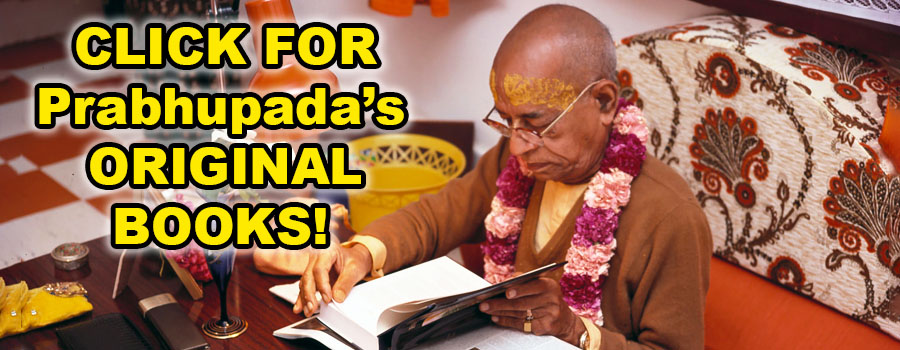
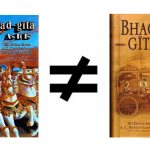
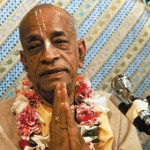
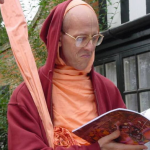

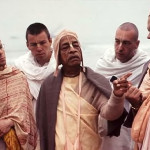

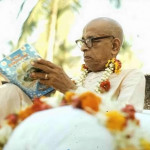
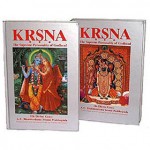
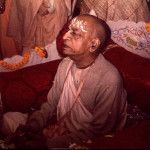
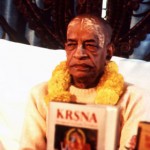
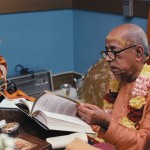
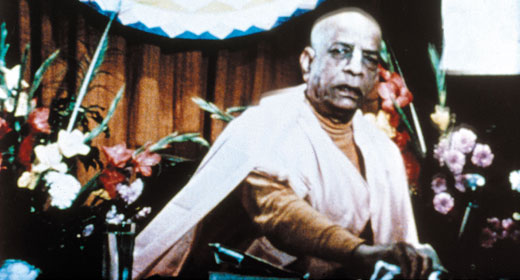
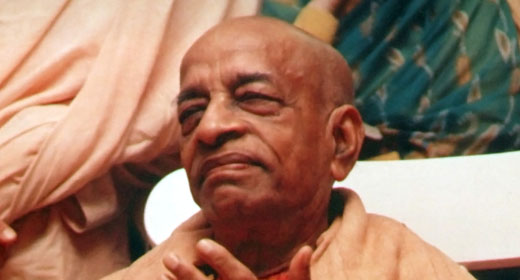
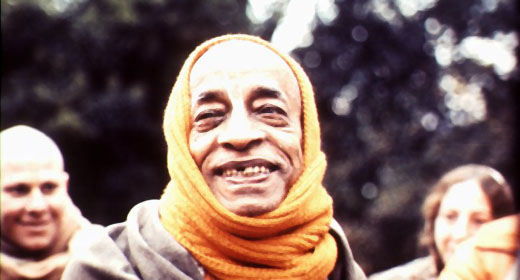
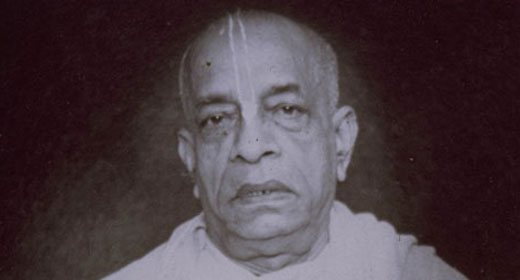
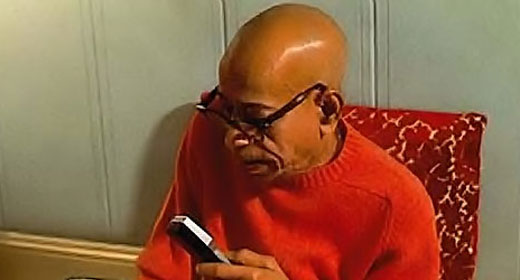
I want to get original shrila prabhupada books where can I get originals unadulterated BBT books.
Only Shrila Prabhupada is worthy to be guru and he should be the only Diksha Guru (one must have two/three siksha guru teachers so if one or two fails one is left.
I have direct experience of the corrupted Guru and their infestation of the Iskcon In the name of Krsna I curse the ones who play God with innocent seekers of Krsna I curse them to Atma Ha that their souls and 23 generations of their evil family’s souls be flung to the darkest region.
I curse that those who are defying Jagad Guru and evil hiding in Radha Krsna devotees cloths immediately get disease and slowly and surely get exposed of their falsity and die to have their souls flung to the darkest region.
All sincere devotees curse these changes by the impostors it is time to get back to the original track of our leader Jagad Guru.
Rajendra Ganpatram Yagnik
Hare Krishna Prabhu
You can get Srila Prabhupada’s original books at:
http://www.KrishnaStore.com
and read them online at:
http://www.PrabhupadaBooks.com
And in India you should be able to get from ISKCON Bangalore.
Chant Hare Krishna and be happy!
Madhudvisa dasa
Hare Krsna, pamho, agtsp,
I would like to begin a new relationship with you. Please forgive me for any past offences. The main thing is that now you have shown that you are following the system of diksa and paramapara, so I feel there should be no more issue between us. Furthermore, I can relate with many of your positions in defiance of the current leadership within ISKCON, especially the book changes. So, to show my fraternal spirit toward you, I have linked bookchanges.com to my traditionalist/conservative website, oneiskcon.com. Also, I would like to let you know that I am now distributing KBI books and getting much heat from ISKCON.
Thank you for your nice thoughts and humble attitude. One thing you said that struck me is “many of your positions IN DEFIANCE of the current leadership within ISKCON, especially the book changes.” I don’t think of it as if I am “in defiance” against any one, or any ones position I am focused on the nonsense that is going on under the name GBC, BBT, BBTI, etc etc I am simply following Srila Prabhupada. If others in ISKCON or out of ISKCON want to fallow Srila Prabhupada and his clear instructions on management, printing of his books Diksa, or any other topic then that is wonderful and if others in ISKCON or out of ISKCON want to disregard Srila Prabhupada’s instructions then I am not going to blindly follow them to hell or any where else for that matter. I follow Srila Prabhupada because he is the Acharya. Its as simple as that.
If someone is currently occupying a position of Authority or management or GBC etc in ISKCON but is not following Srila Prabhupada’s instructions or mood then he is not actually in ISKCON he is in illusion and not to be followed by any sincere follower of Srila Prabhupada. ISKCON is Prabhupada’s society and if someone is not in accord with the mood, instructions or orders of Srila Prabhupada ISKCON founder and Acharya then they are not qualified to be followed no matter what title they are flaunting (GBC, BBT, TP, Guru etc)
If by the grace of Krishna I have some realizations to share and some time to write them down about the reality of an issue that others may be confused about I will do it. That is not to defy devotee going against Prabhupada, it is to glorify Srila Prabhupada. I feel there is a vast difference. Simply defying persons is a waste of time. Glorifying the truth or helping the truth to be illuminated when it is covered by illusion is wonderful. That is why I have dedicated my life to daily distributing Prabhupada’s original books. The original books are like the sun of truth and purity and changed books are like the sun comming through a smog cloud both say to surrender to Krishna, but if given a choice what type of sun light one would like to have I am sure any sane thoughtful person will choose the pure light over the smog-contaminated-light. The more original books that are distributed the more the situation will be helped and the more the books are changed and those changes are distributed the more the situation will become worse. But to look on the bright side the worse it gets the more closer to the end of the nonsense we are coming.
Good to hear from you Raya Nitai Prabhu!
Hare Krishna…I am so CONFUSED now. So, is ISKCON and all its temples to be followed?? I want to be a devotee, but devotee of where and what temple???
Can someone please help me on this?
Thank you..
Hare Krishna Krishnan
Unfortunately ISKCON is not following Prabhupada so you will not get any benefit from following ISKCON. They will only confuse you and distract you from the actual teachings of Srila Prabhupada. So you should avoid the ISKCON temples and devotees. They can not help us come closer to Srila Prabhupada and Krishna.
You need to take shelter of Srila Prabhupada by actually reading all of his books and following the instructions you find Srila Prabhupada giving you while you read his books.
Chant Hare Krishna and be happy!
Madhudvisa dasa
Hare krishna , Dandvat
so , what shud we do now .? As you are saying ISKCON is not qualified ?? Please elaborate??
Your servant
Prabhupada is qualified, Prabhupada is qualified to write transcendental literature… SO WE SHOULD READ PRABHUPADA’S ORIGINAL BOOKS. That is what I am saying…..
You can get PDF scans of the Original / Pre-1978 Srila Prabhupada books at http://innerschool.org/ … There is a torrent file containing almost all of his books– the more seeders, the better the share.
Srila Prabupada C.C. Adi 7-76-81 P: “But the process is that you cannot change the order of spiritual master…… That is allowed. But it is not that you have to change the decision of the spiritual master. No……But it is not that you have to change the decision of the spiritual master…..How you can comment on Bhagavad-gītā? It is spoken by Kṛṣṇa. So you have no right. If you at all want to study Vedānta-sūtra, you have to accept it as it is, without any change….These are the injunction. You cannot change. That is not Vedānta-sūtra. http://prabhupadabooks.com/…/san…/february/02/1967
Hare Krishna Madhudvisa Prabhu,
PAMHO
AGTSP
I beg to differ. Prabhupada has also instructed us not to leave ISKCON for any reason. So I think you are misguiding people by giving them only a partial truth. If we are to follow Prabhupada perfectly we must follow ALL his instructions, not just few according to our taste and liking.
1. You are correct when you say follow Prabhupada’s original books. We do. I always quote from and suggest people to buy Original Macmillan edition of BG As It Is.
2. You are wrong when you say dont follow ISKCON. Prabhupada never wanted us to leave ISKCON even if we had some differences between. So we must all stay in ISKCON and preach from the original books of Prabhupada. I dont think anyone in ISKCON can stop you from following the original books. I live in ISKCON udhampur, I am a disciple of HH Navayogendra Maharaj, and I refer to original books by Prabhupada always. In fact my Gurudeva encouraged us to read original books by Prabhupada. So I think in this matter you are not correct. You should not try to break ISKCON. You should try to repair it. That will make Prabhupada really happy. Let us not kick each other. Let us help each other. And move together.
Hare Krishna!
Hare Krishna Vaisnav Charan Prabhu
Please accept my humble obeisances. All glories to Srila Prabhupada!
Yes. If you can preach from and convince ISKCON to distribute and use Srila Prabhupada’s original books then that is good and all glories to your service!
ISKCON is ultimately made up of devotees. And if the members of ISKCON decide to follow Srila Prabhupada’s instructions they find in Srila Prabhupada’s original books instead of following the deviations introduced by the so-called leaders then it will be good. They can replace the deviant leaders with leaders who are surrendered to Srila Prabhupada and it will be nice.
Yes. Obviously the best thing is to stay in ISKCON and fix it.
Chant Hare Krishna and be happy!
Your servant
Madhudvisa dasa